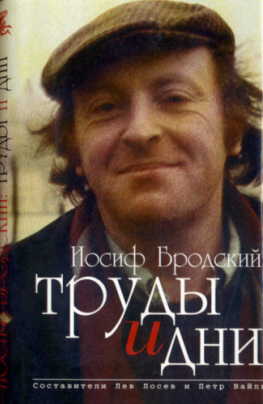 Joseph Brodsky / Иосиф Бродский
Joseph Brodsky / Иосиф Бродский
1940-1996
Brodsky was to a degree the heart and soul of The Third Wave. He belonged to it, he embraced his Russianness and his new American home, and he ultimately succeeded beyond his and their wildest expectations when he was awarded the Nobel Prize in literature. He replies to Popovsky's questionnaire 1, 28.
An excellent starting place for Brodsky in Russian is this comprehensive site.
English speakers will want to check the Wikipedia entry and its links
A selection of some English poems and Russian texts.
There is hardly a single newspaper or journal of the Russian emigration that did not publish Brodsky. He seemed willing to contribute his words and ideas to them all. He came to America in part because he knew English and that knowledge of the language served him well, as he made friends and gained respect in the English speaking literary community. He was teacher, lecturer, but most of all a poet, in the great Russian sense. A MacArthur fellow, he once opined as the changes in Russia were becoming more apparent that literature in Russia had played a key role in keeping alive democratic hopes, and he worried that Russian literature would recede to the position of literature in the West, largely unread and underappreciated. For Brodsky that was fortunately not the case.
The voluminous archives of Brodsky are now housed at the Beinecke Rare Book and Manuscript Library at Yale University. Still uncatalogued (although that process is underway), a preliminary list can be found here. From the Beinecke homepage look for "Uncatalogued collections", UNCAT.MSS.649. A total of eighty nine boxes currently hold a treasure chest of correspondence and personal documents.
See also Valentina Polukhina (Валентина Полюхина), Brodsky through the Eyes of his Contemporaries. (London: 1992). Russian versions Иосиф Бродский глазами современников, Iosif Brodsky glazami sovremennikov (СПб: 1997) and II, (СПб: 2006).